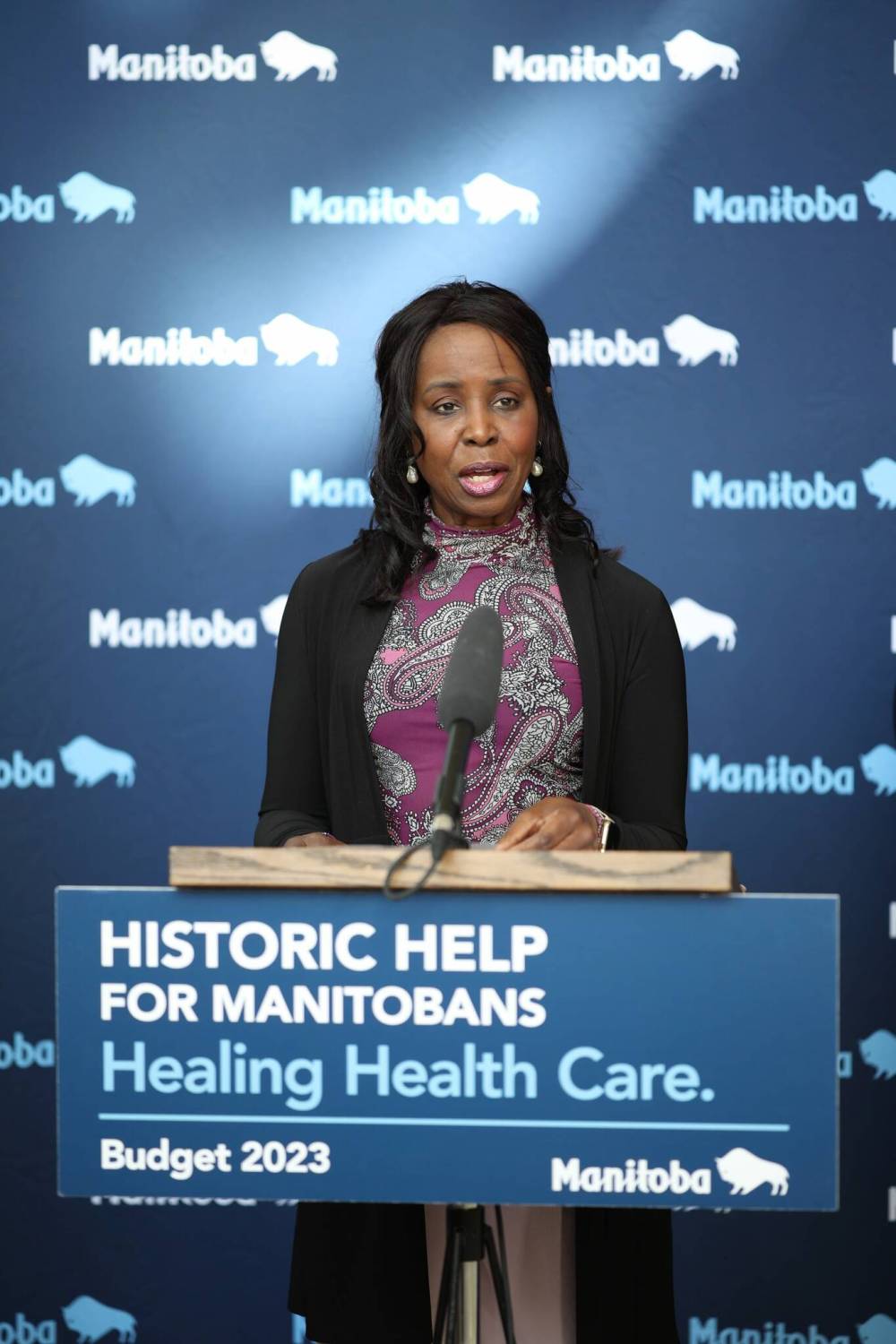Manitoba government refuses to say how many health workers have quit
Read this article for free:
or
Already have an account? Log in here »
To continue reading, please subscribe:
Monthly Digital Subscription
$0 for the first 4 weeks*
- Enjoy unlimited reading on winnipegfreepress.com
- Read the E-Edition, our digital replica newspaper
- Access News Break, our award-winning app
- Play interactive puzzles
*No charge for 4 weeks then price increases to the regular rate of $19.00 plus GST every four weeks. Offer available to new and qualified returning subscribers only. Cancel any time.
Monthly Digital Subscription
$4.75/week*
- Enjoy unlimited reading on winnipegfreepress.com
- Read the E-Edition, our digital replica newspaper
- Access News Break, our award-winning app
- Play interactive puzzles
*Billed as $19 plus GST every four weeks. Cancel any time.
To continue reading, please subscribe:
Add Free Press access to your Brandon Sun subscription for only an additional
$1 for the first 4 weeks*
*Your next subscription payment will increase by $1.00 and you will be charged $16.99 plus GST for four weeks. After four weeks, your payment will increase to $23.99 plus GST every four weeks.
Read unlimited articles for free today:
or
Already have an account? Log in here »
Hey there, time traveller!
This article was published 11/05/2023 (942 days ago), so information in it may no longer be current.
Manitoba’s health minister won’t say if there’s been a net loss or gain in the effort to recruit health care providers or whether she thinks the public needs to know.
It’s a decision that may erode voters’ trust in government, says one political expert.
Health Minister Audrey Gordon announced last week that 900 health care providers had been hired since the Progressive Conservatives’ health human resources action plan, to address the staff shortage, was unveiled in November.

Tim Smith/The Brandon Sun Files
Health Minister Audrey Gordon announced 900 health care providers had been hired since the Progressive Conservatives’ health human resources action plan was unveiled in November.
Gordon hasn’t answered questions about whether those 900 hires represent a net gain or loss: if more workers have been hired than the number who have left.
On Thursday after question period, the minister was asked to explain why she refuses to share that information, and if she sees any value in being transparent with Manitobans about actual health care staffing levels.
“I believe that we are accountable to the public for the commitments we make as a government,” Gordon said. “Our commitment was to add… 2,000 more health professionals. We are providing the public with information on our achievements towards that goal, which is nearly 900 additional health professionals,” she said. “That is what I believe the public wants to know,” Gordon told reporters.
An expert in politics and public administration said the public needs to know both sides of the ledger: how many people have been hired and how many have left. It’s especially important given an election will be held in the fall.
“The public does certainly deserve all the information, so it can make an informed decision about the legitimacy of this government,” said University of Manitoba Prof. Karine Levasseur.
“If only part of the information is being received and not the entirety of the information, are we getting a clear picture? Why is the minister refusing to answer a valid question from journalists?” she said.
“Every time unwarranted secrecy happens, it erodes that legitimacy. We see pockets where trust is declining in government,” said Levasseur.
While the minister won’t say whether there has been a net gain or loss of staff, allied health professionals say that information is readily available from the employer — and there’s a glaring net loss.
The Manitoba Association of Allied Health Care Professionals tracked new hires and terminations every month from November 2021 to March 2023. It shows more terminations than hires in all but two months during that time.
“If only part of the information is being received and not the entirety of the information, are we getting a clear picture? Why is the minister refusing to answer a valid question from journalists?”–University of Manitoba Prof. Karine Levasseur
From the time the province announced its action plan in November, until March, turnover data provided by the employer shows 100 new hires and 151 terminations, for a net loss of 51 allied health professionals.
For the same five-month period a year earlier, November 2021 to March 2022, there were new hires (116) and terminations (172), for a net loss of 56 allied health professionals.
The NDP health critic said the public needs to know whether there is a net gain or loss in allied health care professionals, nurses and doctors and the fact Gordon refuses to share that information with the public is telling.
“I think the the fact that minister is refusing to answer a very straightforward and important question is in and of itself the answer,” Uzoma Asagwara said after question period.
“The fact is that we have lost health care professionals. (The governing PCs) are not doing enough to make sure we have the health care capacity in terms of human resources, and their failures are directly hurting Manitobans,” Asagwara said.
The MAHCP says most of its members have been without a contract for five years, and the shrinking workforce is making it tougher to stay for those left behind whose workload has increased.
Just two of the province’s action plan incentives are available to allied health professionals, said president Jason Linklater, whose union represents all professional-technical-paramedical employees directly employed by Shared Health, the Winnipeg and Northern Health regions, and many community health agencies, including CancerCare and the Rehabilitation Centre for Children.
In Manitoba, the incentives to leave are starting to outweigh those to stay when compared to what’s on offer in other provinces like British Columbia, where generous contracts are in place.
“It’s all a result of understaffing, ultimately,” he said. “You can draw a line back to a lack of investment into public health care,” Linklater said.
“If you neglect anything over time, it will die. That is what we’re seeing here.”
carol.sanders@freepress.mb.ca

Carol Sanders
Legislature reporter
Carol Sanders is a reporter at the Free Press legislature bureau. The former general assignment reporter and copy editor joined the paper in 1997. Read more about Carol.
Every piece of reporting Carol produces is reviewed by an editing team before it is posted online or published in print — part of the Free Press‘s tradition, since 1872, of producing reliable independent journalism. Read more about Free Press’s history and mandate, and learn how our newsroom operates.
Our newsroom depends on a growing audience of readers to power our journalism. If you are not a paid reader, please consider becoming a subscriber.
Our newsroom depends on its audience of readers to power our journalism. Thank you for your support.
























